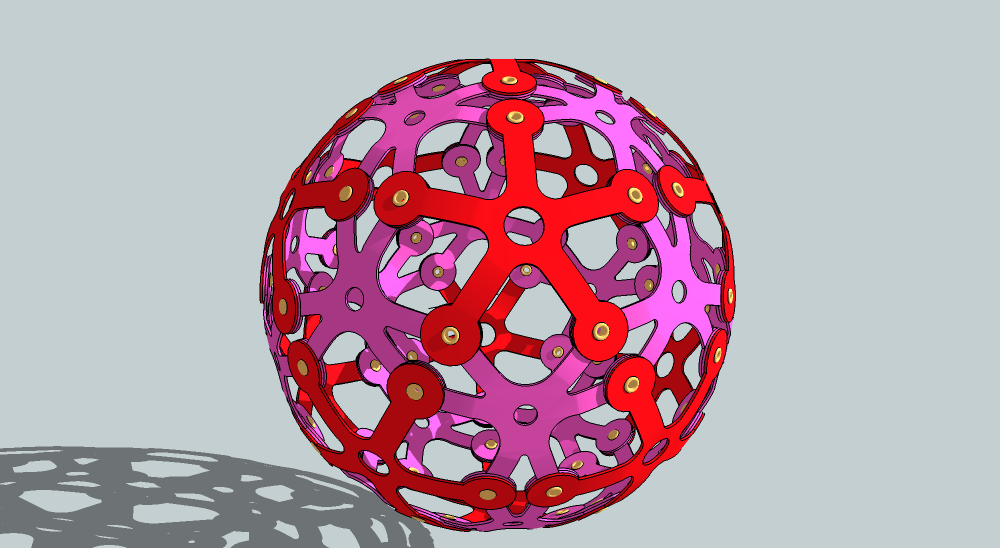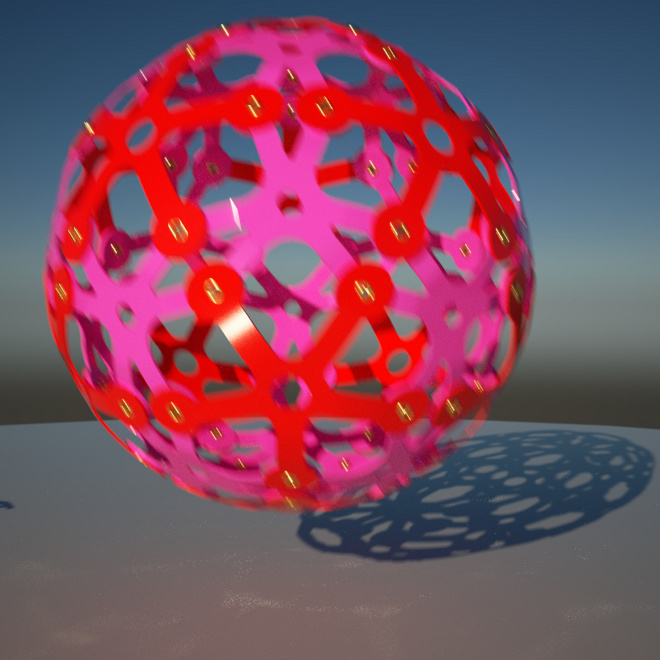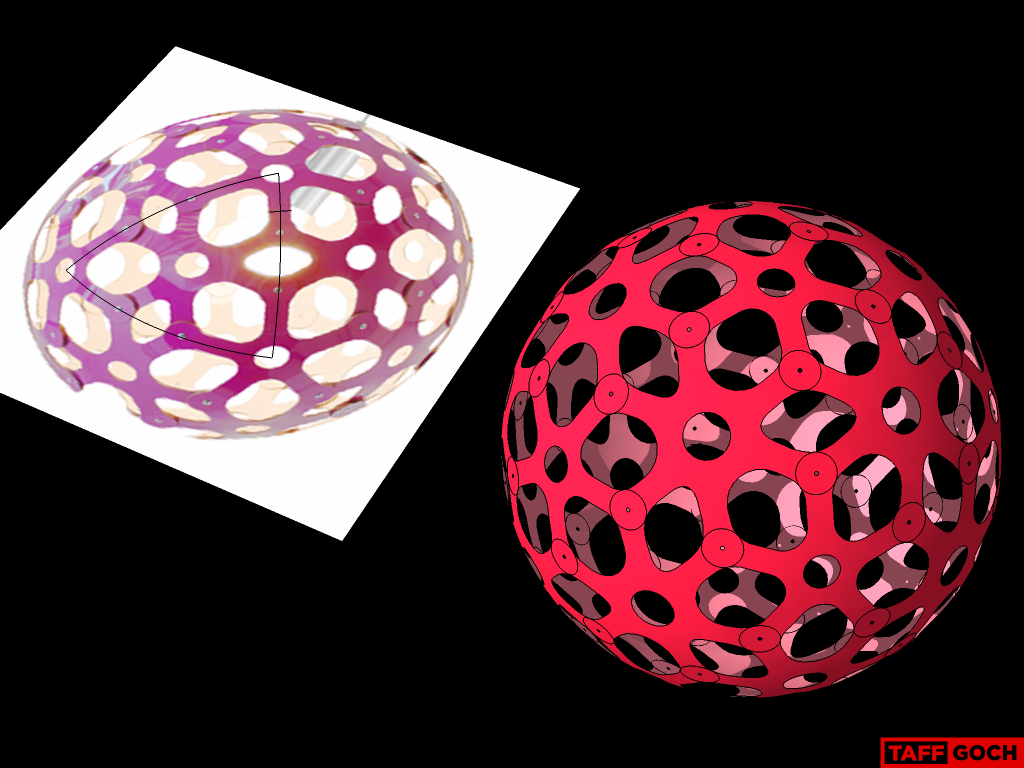Completely lost on how to create this orb
-
Seems to be just two tessellations making up all the components of the lamp. I would use Tool on Surface to a sphere to create the initial curved components then copy as an array around the sphere. At this point you could also add the twisted ends so they overlap) Here you could move the components over each other so they aren't co planar and then add the little rivets. It's quite simple if you break it down but tricky in execution.
-
Make a Geodesic sphere.
MultipleFaceOffset.
Erase all faces with <=4 edges...
JointPushPull.
Use Artisan to sub-divide/smooth it...Choose the 'sphere' type that gives the 'hole pattern' desired...
Here's one I threw together is a minute or two... -
Nice, TIG. I kept working along those lines myself but it would either crash the computer or look like crap... I will be interested to use exactly the steps you have. I perhaps made the mistake to create my first sphere with Artisan. And I used Lattice maker. I wonder if some creasing will give sharp edged cut-outs?
-
LatticeMaker makes the parts as ovelapping frames which can't be easily made solid - even with SolidSolver.
Windowizer4 has similar limitations.Here's my workflow.
Make a Geodesic sphere == I used that plugin, octahedron, 2 iterations, 1m radius.
Edited the 6 small 'sqaures' into one face...
MultipleFaceOffset == I used that plugin, 50mm offset.
Erase all faces with <=4 edges... I selected all inside the group and wrote a one-liner in the Ruby Console:
Sketchup.active_model.selection.each{|e|e.erase! if e.is_a?(Sketchup::Face)&&e.edges.length<=4}
JointPushPull == used that with 50mm offset and keeping original faces, no partitions. Makes result as a 'solid'...
Oriented the faces...
Used Artisan to sub-divide/smooth it... -
It's basically this shape(roughly, I haven't rounded all the corners) UV wrapped around around a sphere. The problem is its 5 sided. Any way to do that?
-
That's why it's best to start with some kind of Geodesic sphere...
Mapping an image onto a sphere is going to give you brain-ache...
-
Here's an attempt. I started with a geodesic sphere from the warehouse. I don't have time to go through the steps, but I remade it with components. The model is attached if you want to explore the parts. It's not perfect and might not even be accurate, but it was a fun experiment. Hope it helps.
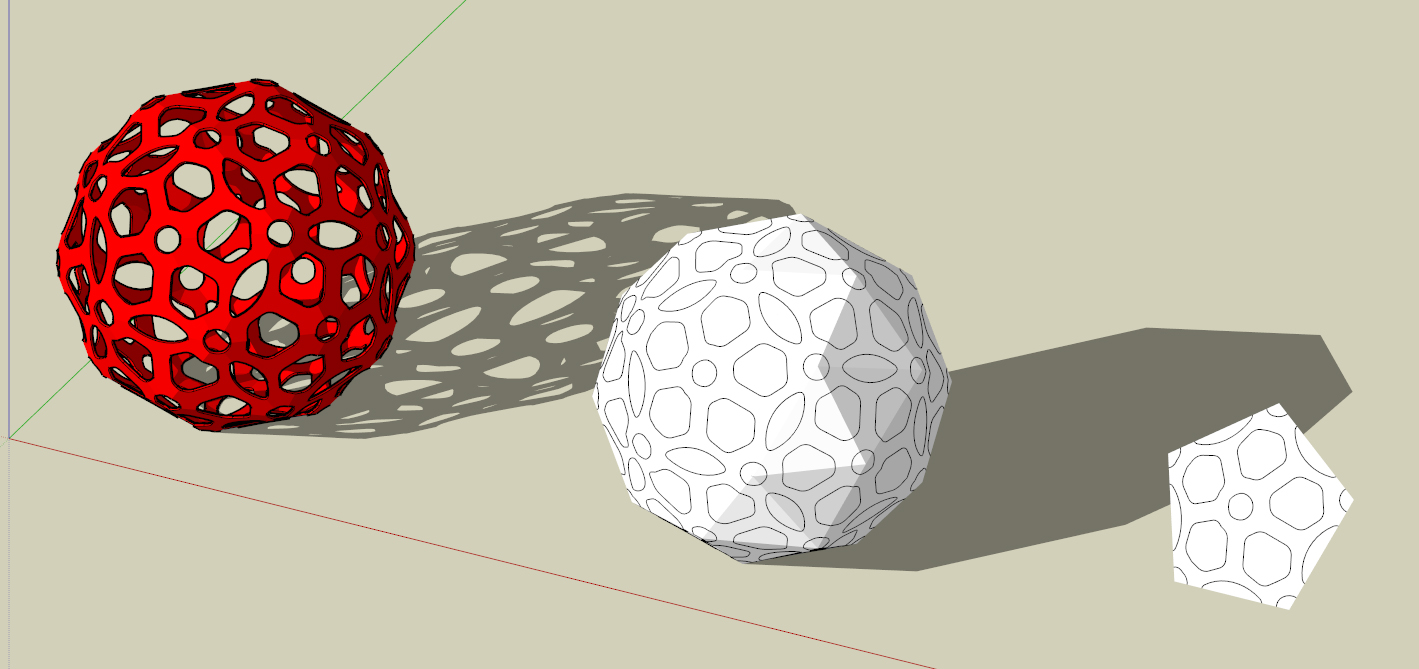
-
Wow, thank you so much for the amazing responses everyone. All these techniques are such good ideas, I'll try and build this myself using the different methods mentioned above as well to learn more complex items in SketchUp!
Much appreciated!

-
-
Very nice Gilles

-
-
@gilles said:
I enjoy geodesic, see this one:
Very clever, just shows how capable SketchUp is in the right hands.
-
Good examples, above...
I've (thus far) modeled the basic geometry of the pentagonal components.
The pendant lamp geometry is based on a 3v, class-I geodesic sphere.
(Contributors have been quick to jump on this question. I almost missed seeing it, while lurking.)

-Taff
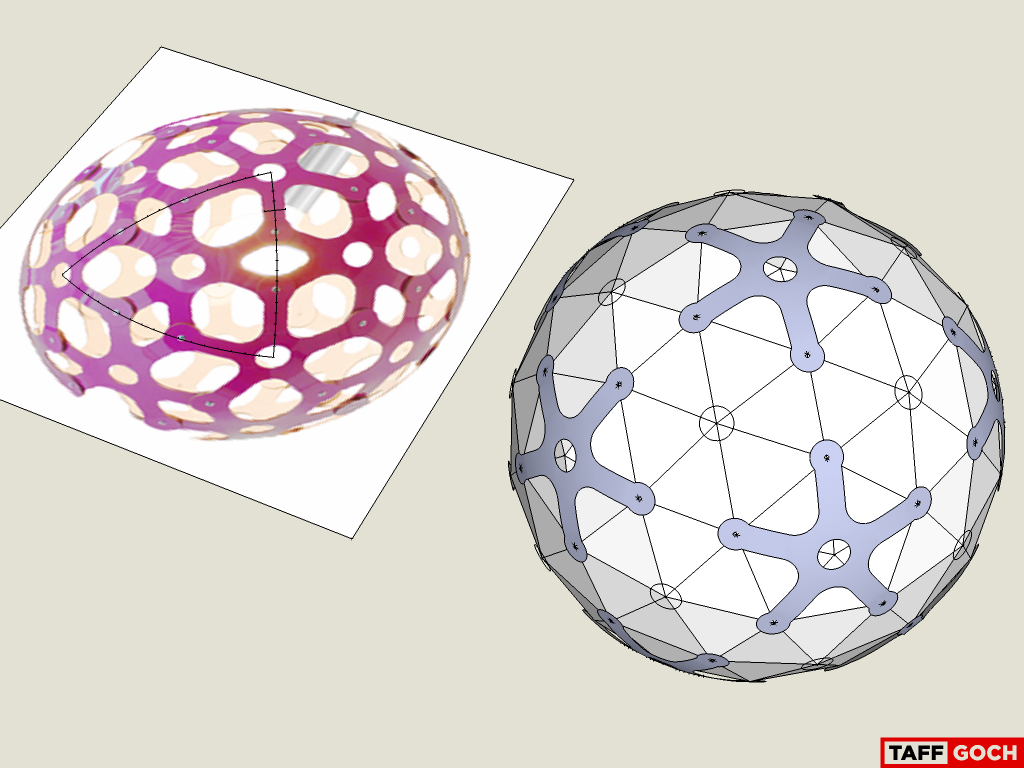
-
I produced the curved-arm portions, simply by radially-copying rectangles along an arc between the geodesic vertices.
Here's a detail, showing "hidden geometry" (lines.)
-Taff
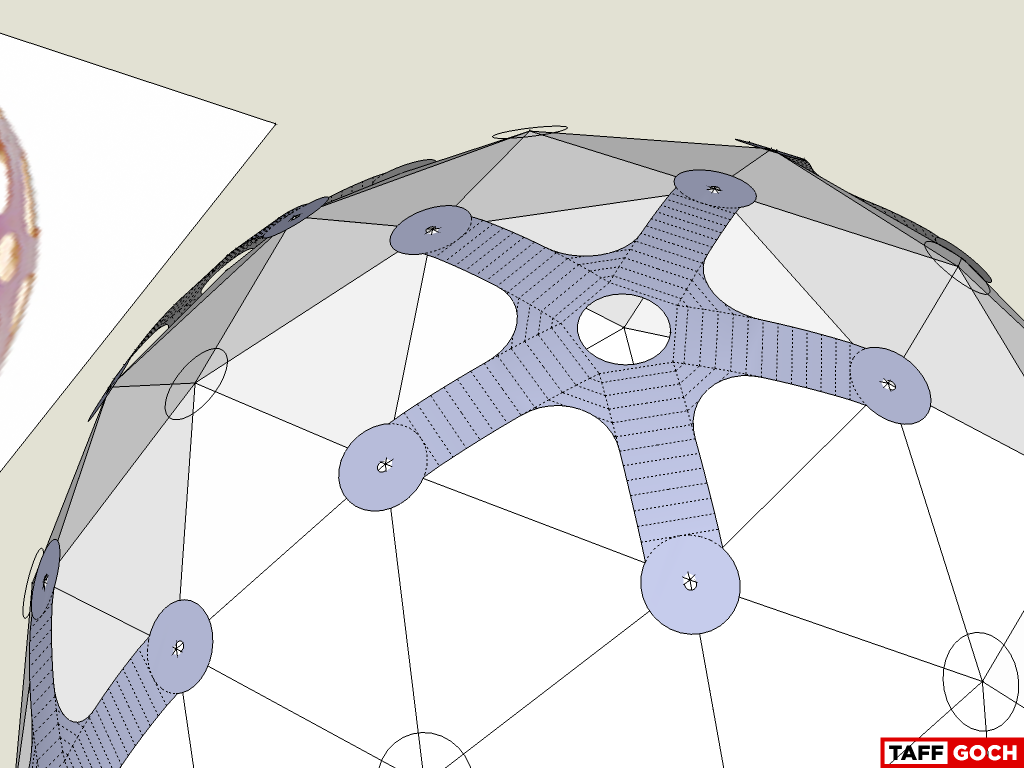
-
-
Geodesic-based lamp spheres have, seemingly, been popular, over the past few years.
Here's a sampling for your SketchUp modeling exercises:
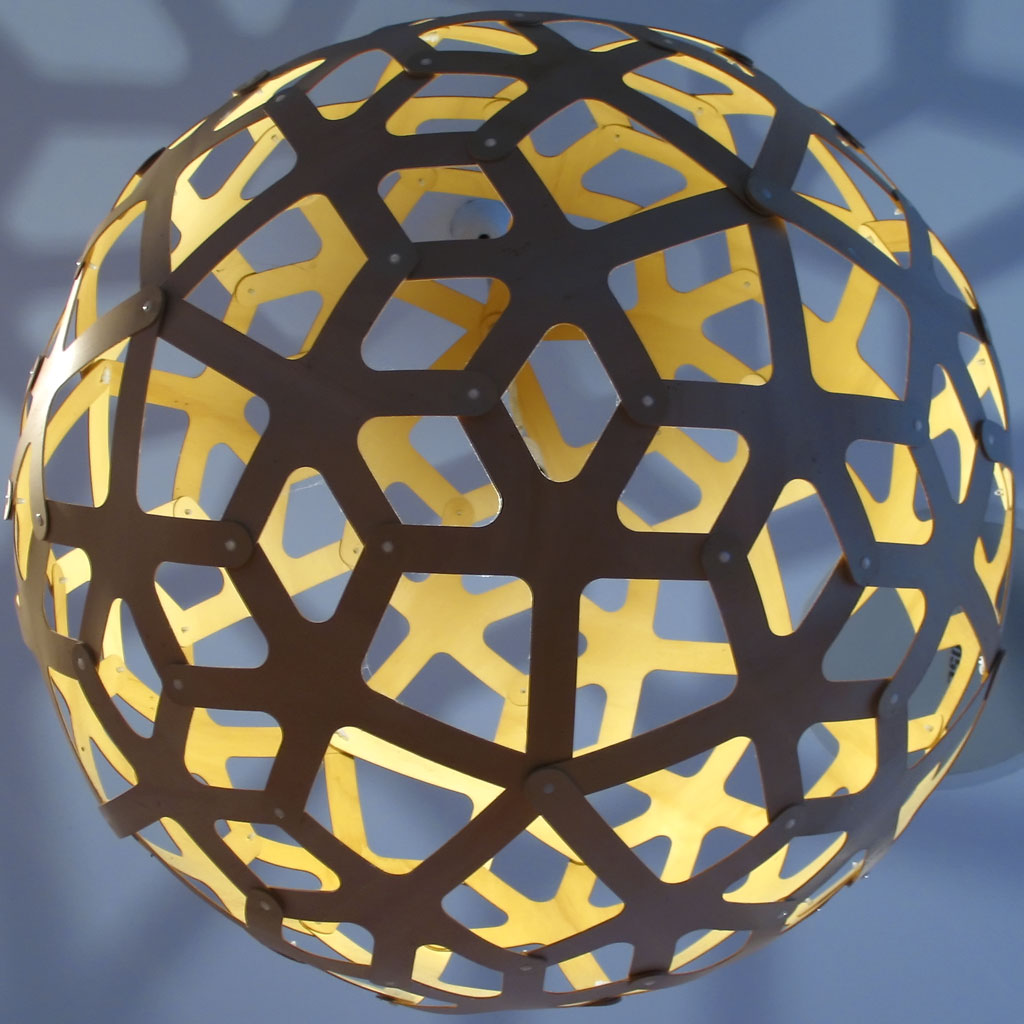
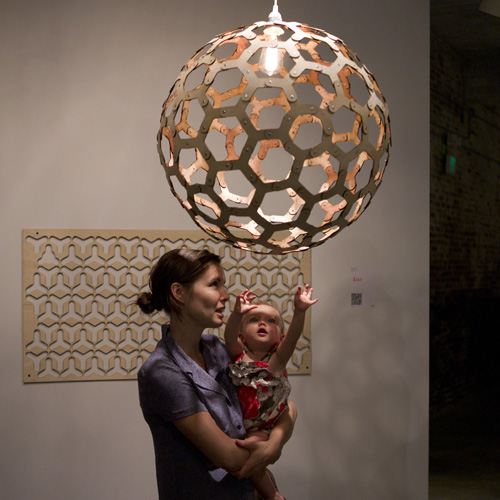
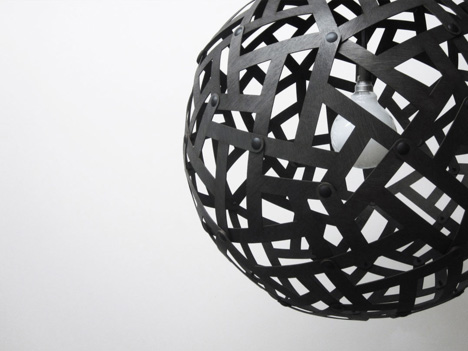
Advertisement
